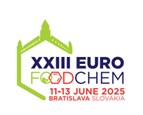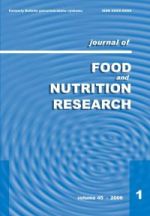Scientific journal
Journal of Food and Nutrition Research
Online First Articles
Zainuddin, N. – Mohamad Azman, E. – Mohsin, A. Z. – Meor Hussin, A. S. –
Advancing sugarcane juice as a sustainable alternative to plant-based sports isotonic drinks: Innovations in preservation techniques
Muhamad Hafiz Abd Rahim, Department of Food Science, Faculty of Food Science and Technology, University of Putra Malaysia, Jalan Sapucahaya, 43400 UPM Serdang, Selangor, Malaysia; Halal Products Research Institute, University of Putra Malaysia, Putra Infoport,
Review article
Received 20 May 2024; 1st revised 18 July 2024; 2nd revised 9 October 2024; accepted
Summary: Sugarcane juice has gained popularity for its refreshing taste and flavour, making it a traditional beverage cherished in various cultures. Rich in sugars, vitamins, minerals, antioxidants, prebiotics and bioactive compounds, sugarcane juice and its derivatives stand out as promoting health and rejuvenating, making it an appealing natural alternative to commercialised isotonic beverages. Augmenting sugarcane juice with probiotics enhances its health benefits and also elevates its commercial value. Despite its potential therapeutic effects, the limited shelf life of fresh sugarcane juice due to microbiological spoilage and enzymatic reactions necessitates effective preservation methods. Various emerging techniques, including processing with ultrasound, high-pressure or pulsed electric field, and other hurdle techniques, have been explored to extend its shelf life. These methods act by inhibiting enzymatic reactions and microbial growth. They replace conventional thermal treatment to ensure the safety and quality of sugarcane juice under milder while efficient conditions, though the adoption of advanced technologies may involve higher operational and processing costs. This review focuses on the potential of sugarcane juice as a health-promoting drink and explores emerging techniques for preserving its nutritional and physico-chemical values, paving the way for its commercialisation.
Keywords: hurdle technology; plant-based drink; ergogenic; probiotic; food safety; antioxidant
Download:
(pdf, 400.71 Kb, 192x)










